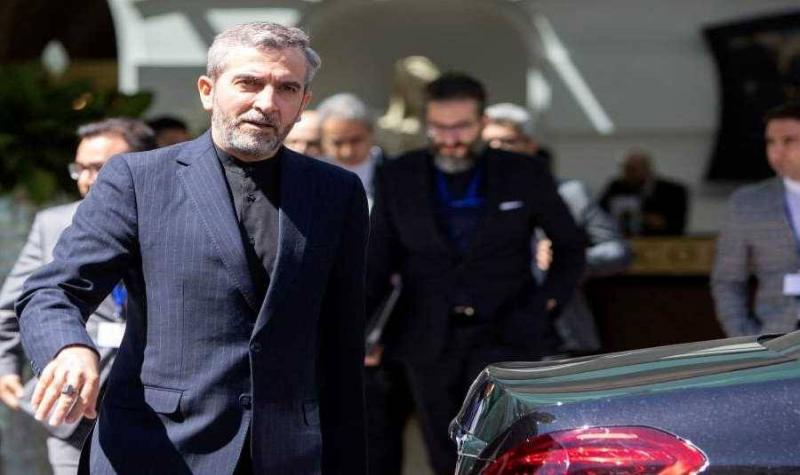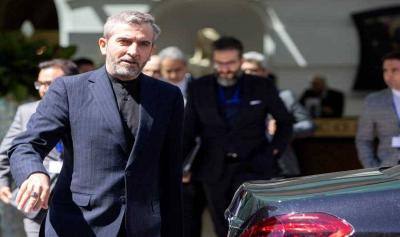The Vienna nuclear negotiations are set to resume after a five-month hiatus, continuing in an indirect format between Tehran and Washington through intermediaries.
**Baqeri Starts Meetings:** Iranian chief negotiator Ali Bagheri Kani held meetings on Thursday afternoon with Russian envoy to the Vienna talks Mikhail Ulyanov and European coordinator Enrique Mora, according to Iranian news agencies. On Wednesday, Mora, Bagheri Kani, and U.S. Special Envoy for Iran Robert Malley traveled to Vienna to restart talks with Iran, with the participation of delegates from the other parties to the nuclear agreement: Russia, China, France, Britain, and Germany.
While the nature of the bilateral meetings remains unclear—whether they will expand or continue as indirect negotiations under European sponsorship—an informed source from the Iranian negotiating delegation denied "rumors" suggesting that Iran had abandoned its request to remove the Revolutionary Guard from the U.S. terrorism list.
The official Iranian news agency "IRNA" quoted the source stating that the media claims from the "Wall Street Journal" regarding this matter are unfounded. The source added that "the Islamic Republic of Iran has shown goodwill during the negotiations and has reaffirmed its intention to reach a good agreement."
The source further noted that "the ball is now in the United States' court, and if they wish to reach the desired agreement with Iran, they must seize the opportunity granted to them by the nuclear agreement members and act responsibly."
The "Wall Street Journal" had reported that "Iran has decided to abandon its request to remove the Revolutionary Guard from the terrorism list, but still seeks strong guarantees from the United States."
Analyst at the European Council on Foreign Relations Ellie Geranmayeh opined that this new round of talks, which began in April 2021 in Vienna, "could allow for a course correction and provide the necessary momentum to reach the finish line."
Russian envoy Ulyanov arrived at the Coburg Palace, a luxury hotel in the Austrian capital where the talks are taking place, under Mora's facilitation, and left after less than an hour. Meanwhile, Chinese envoy Wang Qun arrived. U.S. envoy Robert Malley is staying at another hotel in the same area, as Tehran does not want direct contact with Washington while the European representative plays the intermediary role.
In a tweet declaring he was on his way to Vienna, Malley sought to temper expectations. He stated: "Our expectations are cautious, but the United States welcomes the EU's efforts and is ready to attempt to reach an agreement in good faith." He added: "It will soon be clear whether Iran is willing to do the same."
Both sides engaged in indirect discussions in Doha in late June, facilitated by the EU, which ended without a breakthrough. On July 26, EU foreign minister Josep Borrell presented a draft proposal to Tehran and Washington in an effort to reach a settlement that would allow the reactivation of the agreement from which the United States withdrew in 2018, urging the parties to accept it to avoid a "dangerous crisis."




